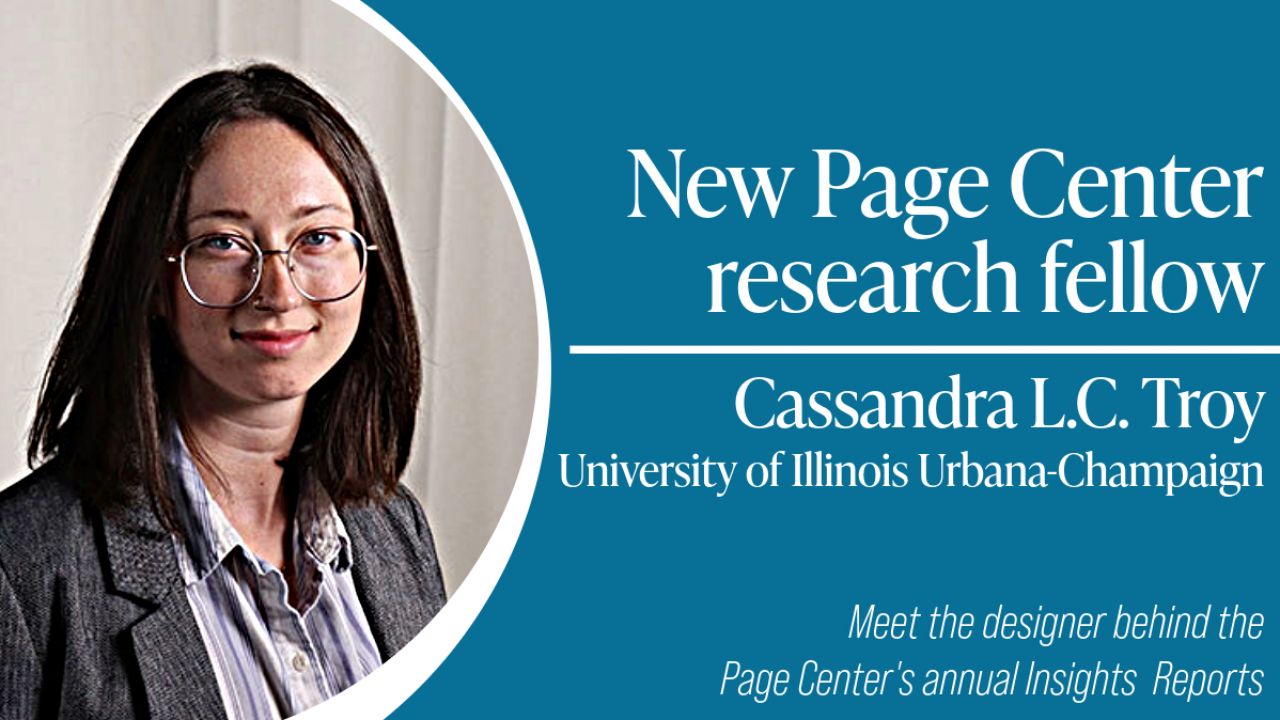July 07, 2025
Page Center’s insights ‘reporter’ signs on as a research fellow

Cassandra L.C. Troy may be a newly named research fellow, but she’s no stranger to the Page Center. Troy has been a funded scholar, a graduate student research assistant, a member of its lab group, and she has designed all the Center’s annual Insights Reports.
This summer, among other things, she will be working on two upcoming reports that showcase completed projects from the Page Center’s digital analytics and prosocial communication research calls.
“There are not enough outlets for getting research out to the general public,” she said. “These reports are a great way for people to get an understanding if they are interested in seeing what the grant call accomplished or want to quickly understand what the research is all about.”
Troy, an assistant professor of journalism at the University of Illinois Urbana-Champaign, combines a strong background in environmental and science communication research with graphic design expertise — an ideal combination for creating visually engaging, accessible materials that highlight the Page Center’s important research.
Since 2023 when the first report was published, Troy has co-created each edition with Page Center research director Holly Overton. They work with scholars to identify key findings and takeaways. They also create a “Top 10” list, which not only highlights practical insights from the collection of research, but ties the work to the Page Principles, the Center’s seven guiding values.
Each document has a website component with brief summaries of the projects. To learn more, a printable document (available for free on the website) offers a more in-depth look at each study. Past report topics were corporate social advocacy in 2023 and sustainability communication last year.
Outside her research fellow role, much of Troy’s scholarly work focuses on environmental communication, specifically how organizations and media communicate about climate change and sustainability.
Her research examines corporate social responsibility, organizational advocacy around climate issues and how different audiences react to environmental messaging. Troy is particularly interested in understanding how communication strategies can effectively motivate people to engage with environmental challenges.
“It's something a lot of people care about,” she said. “There's a lot of different facets to it, and for people and groups and institutions to do something, you need them to understand the science and possible solutions."
She added, “This work is important, especially for the groups and institutions in society that do want to do something to help the environment or address climate change. I think that means that their communication needs to be even more effective."
The Insights Reports are designed to do just that across a range of societal issues. Troy says she appreciates that the Page Center encourages researchers to consider real-world impacts and scrutinize how organizations operate.
“At a time when some sources of research funding are in question,” she said, “The Page Center is invaluable."
